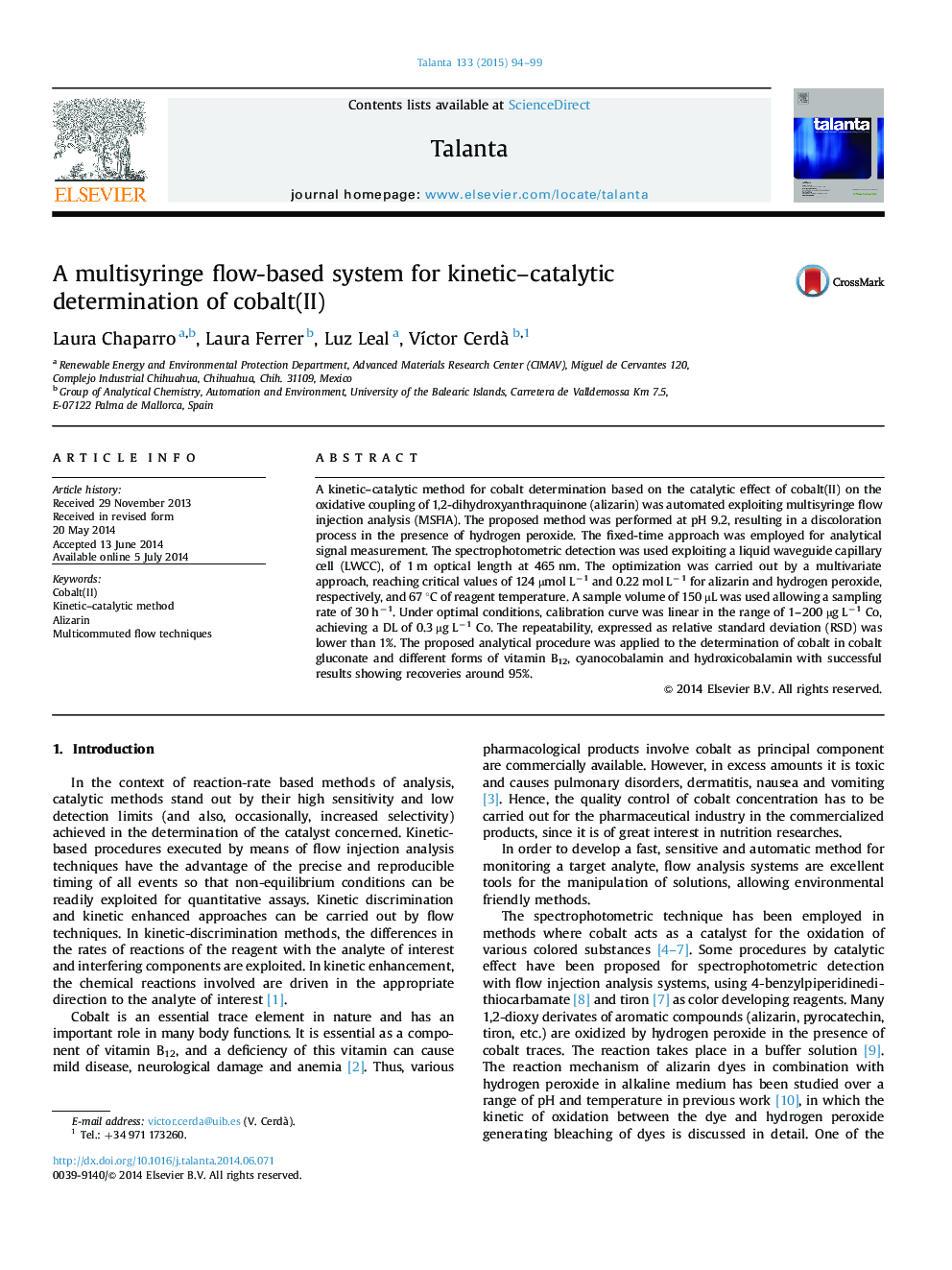| کد مقاله | کد نشریه | سال انتشار | مقاله انگلیسی | نسخه تمام متن |
|---|---|---|---|---|
| 1243430 | 1495802 | 2015 | 6 صفحه PDF | دانلود رایگان |

• High sensitivity for cobalt determination without preconcentration.
• Provides a higher sample throughput than those presented in previous FIA techniques.
• Coupling MSFIA with liquid waveguide capillary cells allows to reach low DL.
• Provides high automation grade, which is very attractive for routine analysis.
• It is able to analyze cobalt in samples of pharmaceutical products.
A kinetic–catalytic method for cobalt determination based on the catalytic effect of cobalt(II) on the oxidative coupling of 1,2-dihydroxyanthraquinone (alizarin) was automated exploiting multisyringe flow injection analysis (MSFIA). The proposed method was performed at pH 9.2, resulting in a discoloration process in the presence of hydrogen peroxide. The fixed-time approach was employed for analytical signal measurement. The spectrophotometric detection was used exploiting a liquid waveguide capillary cell (LWCC), of 1 m optical length at 465 nm. The optimization was carried out by a multivariate approach, reaching critical values of 124 µmol L−1 and 0.22 mol L−1 for alizarin and hydrogen peroxide, respectively, and 67 °C of reagent temperature. A sample volume of 150 µL was used allowing a sampling rate of 30 h−1. Under optimal conditions, calibration curve was linear in the range of 1–200 µg L−1 Co, achieving a DL of 0.3 µg L−1 Co. The repeatability, expressed as relative standard deviation (RSD) was lower than 1%. The proposed analytical procedure was applied to the determination of cobalt in cobalt gluconate and different forms of vitamin B12, cyanocobalamin and hydroxicobalamin with successful results showing recoveries around 95%.
Figure optionsDownload as PowerPoint slide
Journal: Talanta - Volume 133, February 2015, Pages 94–99